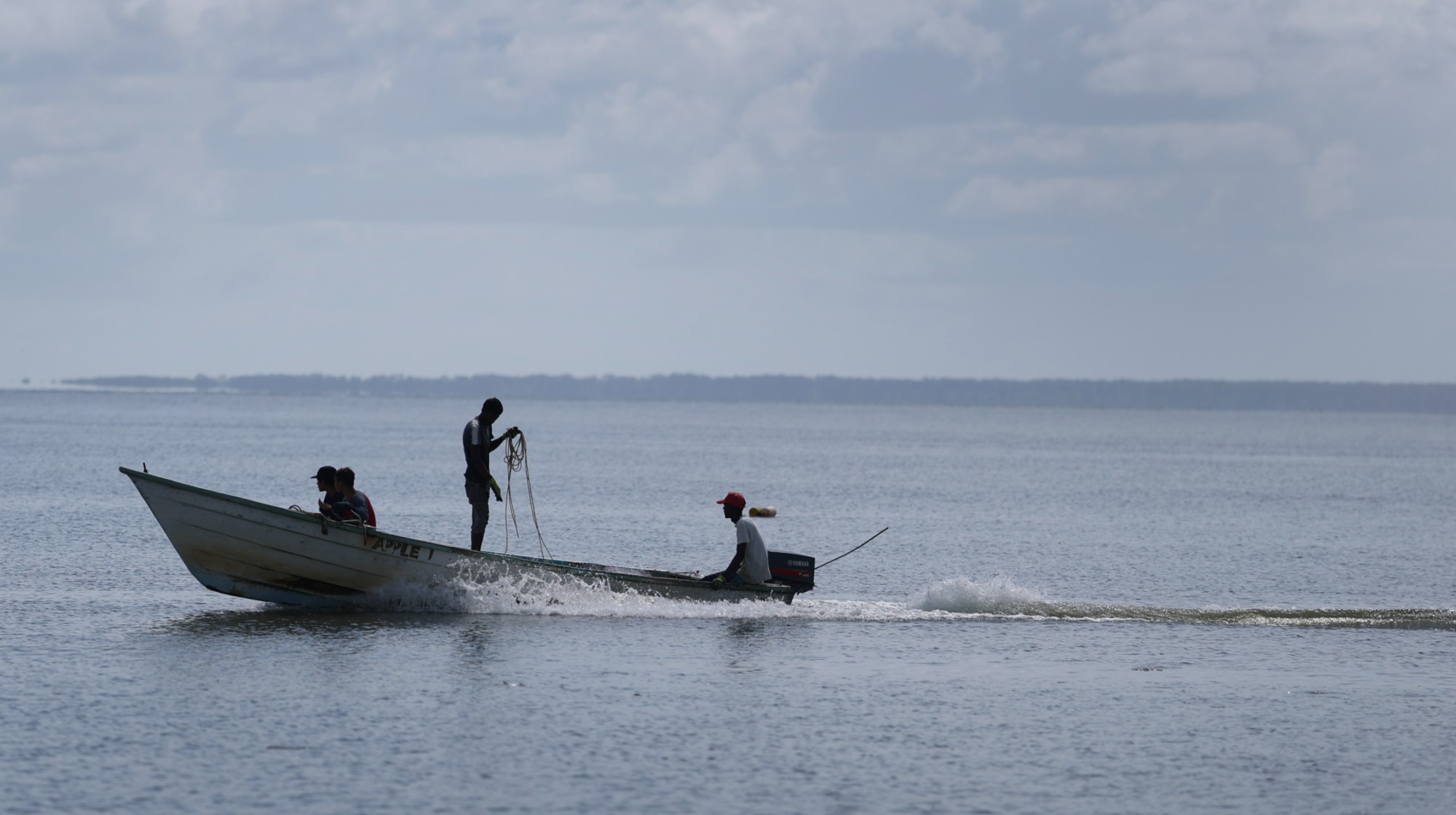UK, Colombia halt intel to US over boat attacks
Both countries have suspended intelligence sharing with the US over the bombing of civilian boats suspected of drug smuggling

A free daily email with the biggest news stories of the day – and the best features from TheWeek.com
You are now subscribed
Your newsletter sign-up was successful
What happened
Britain has paused an intelligence-sharing partnership with the U.S. over the Trump administration’s controversial military strikes on boats it claims are being used for drug smuggling through the Caribbean, CNN and other news organizations reported Tuesday.
Colombian President Gustavo Petro Tuesday said his country had also suspended intelligence sharing with the U.S. until it stops bombing civilian boats. The U.S. has acknowledged 19 boat strikes, killing 76 people.
Who said what
Britain stopped passing drug-trafficking intelligence from its Caribbean territories to the Pentagon’s Joint Interagency Task Force South in September, to avoid being “complicit in U.S. military strikes” it believes “violate international law,” CNN said, citing sources familiar with the matter. The U.K. decision “marks a significant break from its closest ally and intelligence sharing partner” and reflects “growing skepticism over the legality” of the U.S. strikes.
The U.S. “gathers intelligence from a variety of sources, so the loss of the information from Britain will not seriously undercut American operations in the region,” The New York Times said, citing U.S. officials. But Colombia’s intel halt is a “significant blow to the Trump administration’s anti-narcotics operations in the region,” The Washington Post said. “Some 85% of all actionable intelligence used by the Joint Interagency Task Force South” between January 2024 and this June “originated in Colombia,” according to data cited by Rep. Gregory Meeks (D-N.Y.).
Canada has also “distanced itself” from the boat attacks, CNN said. “Concerns about the legality of the strikes” have been raised by “senior U.S. defense officials” as well, including Defense Department lawyers and Adm. Alvin Holsey, who is leaving his post as commander of U.S. Southern Command after a “tense meeting last month” with Defense Secretary Pete Hegseth and top military leaders.
The Week
Escape your echo chamber. Get the facts behind the news, plus analysis from multiple perspectives.

Sign up for The Week's Free Newsletters
From our morning news briefing to a weekly Good News Newsletter, get the best of The Week delivered directly to your inbox.
From our morning news briefing to a weekly Good News Newsletter, get the best of The Week delivered directly to your inbox.
What next?
Any involvement in the U.S. operation “could have legal implications for the United Kingdom,” Brian Finucane at the International Crisis Group told The Guardian. “There’s no serious argument there is anyone other than civilians on these small boats, despite what the U.S. government says,” so that’s an “obvious concern” for “countries who could in some ways be supporting these lethal strikes.”
A free daily email with the biggest news stories of the day – and the best features from TheWeek.com
Rafi Schwartz has worked as a politics writer at The Week since 2022, where he covers elections, Congress and the White House. He was previously a contributing writer with Mic focusing largely on politics, a senior writer with Splinter News, a staff writer for Fusion's news lab, and the managing editor of Heeb Magazine, a Jewish life and culture publication. Rafi's work has appeared in Rolling Stone, GOOD and The Forward, among others.
-
 The ‘ravenous’ demand for Cornish minerals
The ‘ravenous’ demand for Cornish mineralsUnder the Radar Growing need for critical minerals to power tech has intensified ‘appetite’ for lithium, which could be a ‘huge boon’ for local economy
-
 Why are election experts taking Trump’s midterm threats seriously?
Why are election experts taking Trump’s midterm threats seriously?IN THE SPOTLIGHT As the president muses about polling place deployments and a centralized electoral system aimed at one-party control, lawmakers are taking this administration at its word
-
 ‘Restaurateurs have become millionaires’
‘Restaurateurs have become millionaires’Instant Opinion Opinion, comment and editorials of the day
-
 NIH director Bhattacharya tapped as acting CDC head
NIH director Bhattacharya tapped as acting CDC headSpeed Read Jay Bhattacharya, a critic of the CDC’s Covid-19 response, will now lead the Centers for Disease Control and Prevention
-
 Witkoff and Kushner tackle Ukraine, Iran in Geneva
Witkoff and Kushner tackle Ukraine, Iran in GenevaSpeed Read Steve Witkoff and Jared Kushner held negotiations aimed at securing a nuclear deal with Iran and an end to Russia’s war in Ukraine
-
 Pentagon spokesperson forced out as DHS’s resigns
Pentagon spokesperson forced out as DHS’s resignsSpeed Read Senior military adviser Col. David Butler was fired by Pete Hegseth and Homeland Security spokesperson Tricia McLaughlin is resigning
-
 Judge orders Washington slavery exhibit restored
Judge orders Washington slavery exhibit restoredSpeed Read The Trump administration took down displays about slavery at the President’s House Site in Philadelphia
-
 Hyatt chair joins growing list of Epstein files losers
Hyatt chair joins growing list of Epstein files losersSpeed Read Thomas Pritzker stepped down as executive chair of the Hyatt Hotels Corporation over his ties with Jeffrey Epstein and Ghislaine Maxwell
-
 How are Democrats turning DOJ lemons into partisan lemonade?
How are Democrats turning DOJ lemons into partisan lemonade?TODAY’S BIG QUESTION As the Trump administration continues to try — and fail — at indicting its political enemies, Democratic lawmakers have begun seizing the moment for themselves
-
 ICE eyes new targets post-Minnesota retreat
ICE eyes new targets post-Minnesota retreatIn the Spotlight Several cities are reportedly on ICE’s list for immigration crackdowns
-
 Judge blocks Hegseth from punishing Kelly over video
Judge blocks Hegseth from punishing Kelly over videoSpeed Read Defense Secretary Pete Hegseth pushed for the senator to be demoted over a video in which he reminds military officials they should refuse illegal orders


